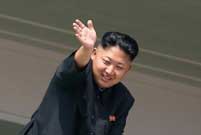BEIJING, Sept. 10 -- A year on from Japan's announcement of its plans to "nationalize" China's Diaoyu Islands, political and economic ties between the two countries have weakened, and they will remain weak if Japan continues its stance.
Since its "purchase" of the islands despite Beijing's warnings on Sept. 10, 2012, the Japanese government has never stopped its provocative moves and denial of history, leading to grave difficulties in bilateral relations.
Now, with Tokyo having won the right to host the 2020 Olympics, an event that advocates peace and harmony, it is the right time for the Japanese government to adjust its attitude on its war-time history and break the stalemate by taking concrete action to win back its neighbors' trust.
The phrase "warm economic ties, cold political relations" has been used since the 1990s to describe China-Japan relations. The recent disputes, however, have chilled once-warm economic ties, shaking the cornerstone of the bilateral relations.
In the first seven months of 2013, bilateral trade declined 8.8 percent year on year to 174 billion U.S. dollars. The trade volume shrank 6 percent in August alone, according to the latest figure from the General Administration of Customs.
The consistent declines in trade between the world's second- and third-largest economies this year were largely due to wrong words and actions by Japanese politicians and government.
Japanese Prime Minister Shinzo Abe said he is eager to improve Japanese-Chinese relations. But his government is certainly talking one way and acting in another.
In addition to escalating the disputes on Diaoyu Islands, Japanese cabinet members also visited the country's shrine honoring Class-A war criminals. Japan is also striving to amend its constitution so that Japan can possess "normal" armed forces with "normal rights" to wage war.
The moves showed that Japan is not sincere about adhering to its responsibility to improve bilateral ties and that China's proposals to solve problems through consultations have not been met with proper responses from Japan.
Bearing an incorrect understanding of its own militarism and history of aggression, Japan should never overlook China's resolution to safeguard its territorial sovereignty.
Since September 2012, Chinese law-enforcement vessels have conducted regular patrols around the Diaoyu Islands and have circled the islands at a minimum distance of 0.28 nautical miles.
Without Japan's good faith to resolve the territorial dispute through negotiations, the already tense situation will continue to face growing uncertainties and risks.
Hard-earned after efforts by generations of leaders of the two countries, the bilateral relationship needs tender care.
For the benefit of both countries and the region at large, China is willing to advance China-Japan strategic ties of mutual benefit on the basis of the four Chinese-Japanese political documents -- the key agreements regarding strategic and reciprocal relations, peace and friendship signed by the two sides in 1972, 1978, 1998 and 2008, respectively.
It is also hoped that the Japanese side can work together with China to close the gap between the two nations and properly handle problems to provide favorable conditions for bolstering bilateral ties.
 DPRK holds military parade to mark 65th founding anniv.
DPRK holds military parade to mark 65th founding anniv. Highlights of MAKS 2013 Int'l Aviation and Space Show
Highlights of MAKS 2013 Int'l Aviation and Space Show  10th China-ASEAN Expo opens in Nanning
10th China-ASEAN Expo opens in Nanning Eagle Boy takes to sky to break another record
Eagle Boy takes to sky to break another record 12-year-old boy becomes pillar of the family
12-year-old boy becomes pillar of the family Eye-gouged boy receives blind rehabilitation in Shanxi
Eye-gouged boy receives blind rehabilitation in Shanxi Top 10 naked hotels in the world
Top 10 naked hotels in the world The most gorgeous Chinese women in the eyes of foreigners
The most gorgeous Chinese women in the eyes of foreigners A collection of bizarre rooftop buildings around China
A collection of bizarre rooftop buildings around China Residences of the royal house of Savoy
Residences of the royal house of Savoy China's frigate 'Bengbu'in fire training
China's frigate 'Bengbu'in fire training Fresh students 'forced' to register in university independently
Fresh students 'forced' to register in university independently 2013 Taiwan Int'l Tourism Expo kicks off in Taipei
2013 Taiwan Int'l Tourism Expo kicks off in Taipei Photo story: Take a gap year
Photo story: Take a gap year Nokia's Global Headquarters: visiting a declining empire
Nokia's Global Headquarters: visiting a declining empireDay|Week|Month